The Role Of Debt Collection In The Finance Industry
How debt is accrued in the finance industry, its importance, how it goes uncollected, and how to collect when it does.

Understanding Debt in the Finance Industry
Debt collection in the finance industry is crucial for companies to maintain liquidity and financial health. Financial institutions, including banks, credit unions, and other lenders, often face challenges with unpaid loans, overdue credit card balances, and other forms of debt. Effective debt collection ensures that financial institutions can recover funds that are critical to their operations.
Debt in the finance industry is unique because it involves various types of loans and credit products. Financial institutions extend credit to individuals and businesses, which sometimes leads to uncollected debt.

The Importance of Debt Collection
Effective debt collection provides financial protection and stability for financial institutions by managing and recovering outstanding debts. This process helps mitigate losses, ensuring that institutions can continue to lend and operate efficiently. Without effective debt collection, financial institutions would face significant financial strain, potentially leading to higher interest rates or reduced credit availability for other customers.
How Debt is Accrued and Goes Uncollected
Debt typically accrues in the finance industry through:
- Loans: Personal, business, and mortgage loans.
- Lines of Credit: Delinquent or unpaid balances.
Debt goes uncollected for several reasons:
- Credit Instead of Cash: In today’s atmosphere, overspending is encouraged and many businesses are tempted to outspend their approved limits. This may lead to no margin of error in their debt service obligations.
- Economic Downturns: Borrowers may struggle to make payments during recessions or economic instability.
- Cash Flow Issues: Businesses or individuals may face cash flow problems, making it difficult to meet their financial obligations.
- Administrative Errors: Mistakes in billing or communication can lead to unpaid debts.

Steps to Recover Funds
Steps for lenders to recover funds entail implementation of lender's policies and procedures aimed directly at delinquencies and non-paid obligations. Client's may find it necessary to integrate a collection partner that aligns with needs and is a value-add to their existing processes.
Account Review
Initial Contact
Negotiation
Escalation
Follow-up
Debt collection agencies utilize advanced technology, data analytics, and skip tracing techniques to locate debtors and recover funds efficiently. Their expertise and resources allow financial institutions to focus on their core operations while ensuring that outstanding debts are managed professionally.

What is Accounts Receivables Management?
Receivables management is the process of keeping track of money that is owed to a business. This includes sending out invoices, reminding customers to pay, and handling payments. Many businesses are not particularly effective at this, especially once the original payment terms expire. At this point, collections often get outsourced to a third party. This is known as accounts receivables management services.
By effectively managing receivables and employing professional debt collection services, financial institutions can maintain financial stability and ensure continuous cash flow, which is essential for their overall health and growth.
How Receivables Management Services Integrate With Existing Financial Systems
Seamless Integration with Business Practices
Receivables management services are most beneficial when they can be implemented with your existing financial systems. It’s important to understand how these services fit into your company's business practices, particularly within the order-to-cash cycle.
Order-to-Cash (O2C) Cycle
The O2C cycle is a comprehensive process that starts when a customer places an order and ends when payment is received and accounted for. Here's how receivables management services, like those offered by NSB, integrate into this cycle:
1. Order Processing
2. Invoicing:
3. Payment Collection:
4. Cash Application:
5. Dispute Resolution:
6. Reporting and Analysis:
Benefits of Outsourcing Payment Collection
The O2C cycle is generally handled internally at organizations, but inevitably some debts go unpaid. Outstanding debt is often hard to collect on which is why many businesses outsource this to debt collection specialists.
Integrating collection services, like those provided by NSB, into your O2C cycle and existing financial systems ensures a smooth and efficient revenue cycle. This partnership enhances the outreach and data collection capabilities and also aligns with your business practices, ensuring seamless operations, improved cash flow, and compliance with regulatory standards.
What Are The Key Benefits of Using Collection Services For Financial Institutions?
Improved Cash Flow
Faster collections mean more available cash for the institution to use for other important activities, like lending to customers or investing.
Deeper Skip Tracing
NSB performs thorough skip tracing, leading to more First Right Party Contacts, which increases the chances of successful debt recovery.
Enhanced Customer Relationships
Professional collection agencies ensures that collections are handled politely and efficiently, helping maintain good customer relations and satisfaction.
Time and Resource Savings
By using receivables management services, the institution can save time and resources that can be redirected to core business activities, like customer service and financial planning.
Improved Accuracy and Reporting
Collection services provide detailed and accurate reports on outstanding receivables, helping the organizations make informed financial decisions.
Regulatory Compliance
Using a certified, professional collection agency ensures compliance with relevant state and federal laws and regulations, reducing the risk of legal issues.
Contingency Model
NSB operates on a contingency model, managing the collection process as needed with certified Agents who specialize in collections. Their expertise means a higher recovery rate, but in instances where an account is deemed uncollectable, our contingency model means clients only incur costs when there is a successful recovery.
Resource Efficiency
By outsourcing collection services institutions can significantly reduce the burden on internal resources. This alleviates staff frustration related to dealing with late and non-payers, allowing clients to focus on their core activities and customer service.
Using collection services offers financial institutions these key benefits, enhancing overall efficiency and financial health.
How do third-party collection agencies operate and what services do they offer to financial institutions?
How They Operate
- Assignment of Debt: When a customer doesn't pay their bill within the agreed timeframe, the company they owe money to (called the "creditor") may decide to hire a collection agency to collect the debt. This means the collection agency takes over the job of recovering the obligation from the customer.
- Contacting the Debtor: The collection agency will contact the customer (called the "debtor") through phone calls, letters, emails, or even text messages. Their goal is to remind the debtor about the unpaid bill and persuade them to achieve a successful resolution.
- Negotiation: Sometimes, the collection agency will negotiate with the debtor to create a payment plan or settle the debt for a lesser amount than what is owed. This can make it easier for the debtor to pay.
- Reporting to Credit Bureaus: Collection agencies offer the option to clients and may report the unpaid debts to credit bureaus, which can affect the debtor's credit score. In the financial industry, there are many compliance regulations that need to be strictly followed, so credit reporting is only done after thorough collaboration and approval from the client.
- A lower credit score can make it harder for the debtor to get loans or credit in the future, which can be a good incentive for the debtor to resolve the outstanding debt.
- Legal Action: If the debtor still doesn't pay, the collection agency collaborates with the client and may take legal action, which could result in court judgments. This allows additional avenues of recovery through the court system.
Services and BPO Solutions Offered
- Business Process Outsourcing (BPO): Not all agencies offer BPO services, but this process can alleviate pressure on your accounting team to resolve overdue payments before the account goes into default at 90 days.
- Debt Collection: When pre-collection activities do not collect 100% of the obligation, the next step is third party debt collection.
- Customer Contact: They handle all communication with debtors, freeing up the financial institution's resources and allowing their staff to focus on their core tasks.
- Payment Processing: Collection agencies manage the payments from debtors, ensuring that the financial institution receives the remittance within their required timeframe.
- Credit Reporting: Agencies have the ability to report defaulted debt statuses to credit bureaus, which helps maintain accurate credit histories for customers and encourages debtors to pay to avoid negative impacts on their credit scores. Payment activity and balance changes are continuously reported to the credit bureau, ensuring accurate, up-to-date information is reflected.
- Legal Services: For accounts in default, some agencies offer legal support to pursue debts through the court system if necessary.
- Consulting Services: They may provide advice and strategies to financial institutions on managing and reducing bad debts.
Factors To Consider
When financial institutions are choosing a third-party collection agency like NSB, they should consider several important factors to ensure they select the right partner. Here are the key aspects to take into consideration:
Don't Trust Online Reviews:
Due to the nature of the debt collection industry, you have to be careful when evaluating companies from online reviews. Most agencies have low ratings because they are reviewed by debtors in the collections process, not the actual clients who are using the company's services. Be wary of agencies with squeaky clean reviews, as that’s extremely difficult to accomplish in the collection industry.
Coverage in All 50 States and/or Internationally:
It's crucial that the agency can operate wherever your customers are located, whether that's across the United States or around the world.
Credit Reporting:
The agency should be capable of reporting debts to credit bureaus. This can incentivize debtors to pay promptly to avoid negative marks on their credit reports.
Trade Group Participation:
Membership in trade groups indicates the agency stays updated on industry best practices and standards.
Industry Expertise:
It is crucial to look for agencies with extensive experience and specialized knowledge in the financial services industry. This expertise guarantees effective and compliant debt recovery processes tailored to the specific needs of financial institutions.
Compliance Certifications:
Verify that the agency has relevant compliance certifications, such as those related to data security and consumer protection laws. This ensures they follow strict guidelines and regulations.
Company Core Values and Culture:
It's important to choose an agency whose values and culture align with your own. This alignment helps maintain a positive relationship and ensures they represent your institution appropriately. Many organizations, like NSB, have their Core Values listed on their website.
Technology
The agency should use advanced technology to streamline the collection process, provide real-time reporting, and ensure efficient communication.
Thorough Process that Integrates Well with the Client’s Process:
The agency should have a detailed and effective process that seamlessly integrates with your own revenue cycle management system. This ensures a smooth transition of accounts to the collections stage.
Licensed and Bonded:
Ensure the agency is properly licensed and bonded in all regions where they operate. This helps to ensure they comply with local regulations and provide financial protection.
Financial Risks and Benefits of Third-Party Collections
Deciding how to collect outstanding accounts receivable is an important consideration for financial institutions. Understanding these factors can help institutions make informed choices to enhance their financial stability and efficiency.
Benefits:
- Recovering Past Due Receivables:
By hiring a professional agency, you increase the chances of recovering owed money while saving internal resources, allowing employees to focus on their core responsibilities.
- Opportunity for Repayment through Judgment and Legal Workflow:
The agency can take legal actions to ensure that you get paid, which might be difficult to handle on your own.
- Leveraging the Staffing from SME Agencies:
Using specialized agencies means you benefit from their experienced staff and advanced technology, rather than trying to hire and train your own collectors.
Risks of Being With The Wrong Collections Agency:
- Brand Protection:
Using a collection agency might affect how your customers view your business. It's important to choose an agency that treats your customers respectfully. - Non-Compliance with State or Federal Laws:
Different states have different laws about debt collection. If the agency doesn't follow these laws, you could face legal trouble. It’s important to question an agency about their compliance management system covering these topics.
Cost-Effectiveness
Outsourcing vs. In-House Collections
To determine if outsourcing collections is more cost-effective than handling them in-house, there are a few things you should consider. Start by looking at the total cost of the employee managing collections, including their salary, benefits, and any other related expenses. Then, think about how effective they are at recovering debts by checking their success rates and how it affects your bottom line. Lastly, consider the time and effort needed to oversee and manage this employee to make sure they're doing their job well.
When reviewing an agency like NSB for cost-effectiveness, it's relatively straightforward. Our model is contingency-based, meaning there are no fees unless we successfully recover the debt.
Aligning with financial goals and cash flow projections
NSB - The Partner Didn’t Know You Needed
We offer advanced skip tracing capabilities and have been in the industry since 1986, during which time we have supported hundreds of clients across dozens of industries. Few agencies offer the specialized expertise that we offer.
